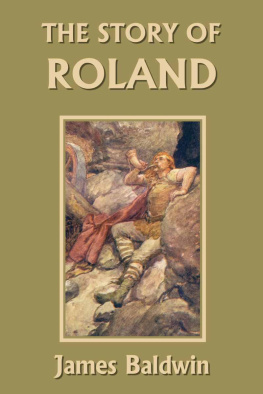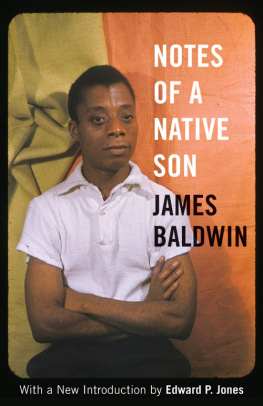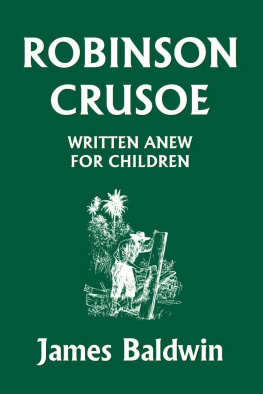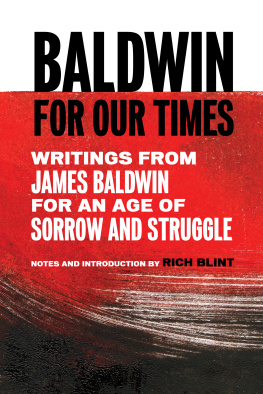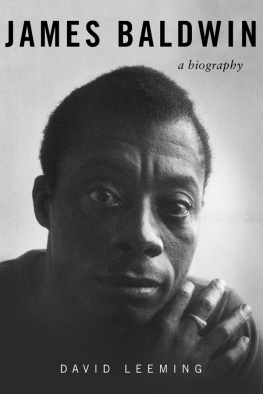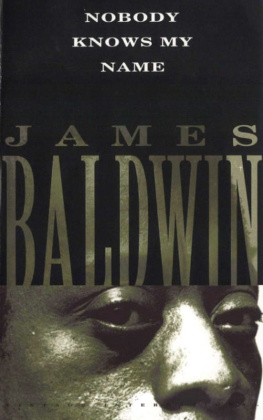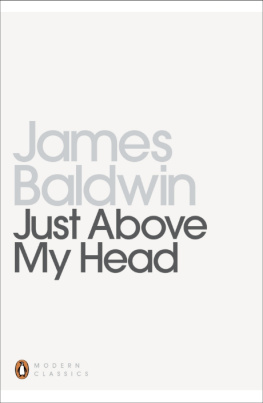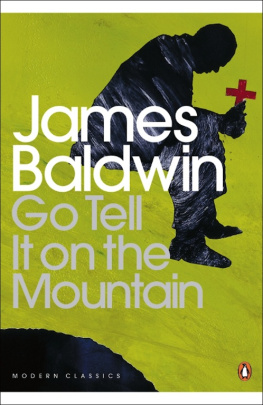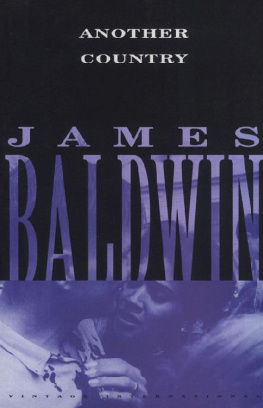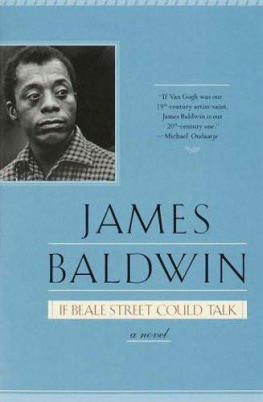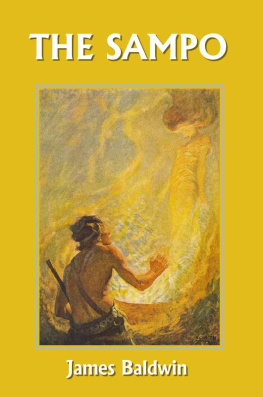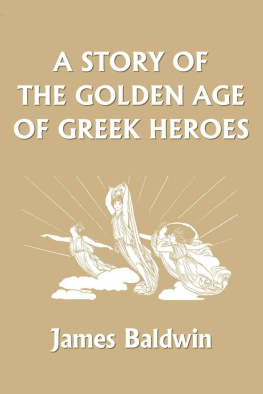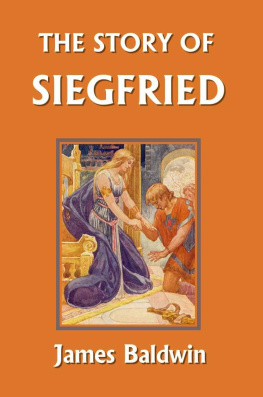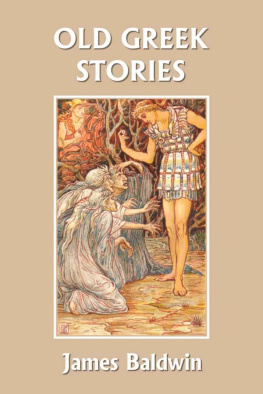James Baldwin - The Story of Roland
Here you can read online James Baldwin - The Story of Roland full text of the book (entire story) in english for free. Download pdf and epub, get meaning, cover and reviews about this ebook. year: 2006, publisher: Yesterdays Classics, genre: Home and family. Description of the work, (preface) as well as reviews are available. Best literature library LitArk.com created for fans of good reading and offers a wide selection of genres:
Romance novel
Science fiction
Adventure
Detective
Science
History
Home and family
Prose
Art
Politics
Computer
Non-fiction
Religion
Business
Children
Humor
Choose a favorite category and find really read worthwhile books. Enjoy immersion in the world of imagination, feel the emotions of the characters or learn something new for yourself, make an fascinating discovery.
- Book:The Story of Roland
- Author:
- Publisher:Yesterdays Classics
- Genre:
- Year:2006
- Rating:5 / 5
- Favourites:Add to favourites
- Your mark:
- 100
- 1
- 2
- 3
- 4
- 5
The Story of Roland: summary, description and annotation
We offer to read an annotation, description, summary or preface (depends on what the author of the book "The Story of Roland" wrote himself). If you haven't found the necessary information about the book — write in the comments, we will try to find it.
The Story of Roland — read online for free the complete book (whole text) full work
Below is the text of the book, divided by pages. System saving the place of the last page read, allows you to conveniently read the book "The Story of Roland" online for free, without having to search again every time where you left off. Put a bookmark, and you can go to the page where you finished reading at any time.
Font size:
Interval:
Bookmark:
All rights reserved. No part of this book may be reproduced or retransmitted in any form or by any means without the written permission of the publisher.
This edition, first published in 2010 by Yesterday's Classics, an imprint of Yesterday's Classics, LLC, is an unabridged republication of the work originally published by Charles Scribner's Sons in 1888. This title is available in a print edition (ISBN 978-1-59915-040-6).
Yesterday's Classics republishes classic books for children from the golden age of children's literature, the era from 1880 to 1920. Many of our titles are offered in high-quality paperback editions, with text cast in modern easy-to-read type for today's readers. The illustrations from the original volumes are included except in those few cases where the quality of the original images is too low to make their reproduction feasible. Unless specified otherwise, color illustrations in the original volumes are rendered in black and white in our print editions.
The fairyland of romance is not far removed from the more sober domains of history. Indeed, the territory of the one sometimes overlaps that of the other; and the boundary line between them is often dim and ill-defined. This truth is illustrated in the legends which have come down to us from the middle ages. In those rude, uncultured times, men did not care greatly to sift fact from fiction, nor to pry into the likelihood of things. No matter how improbable a story might be, if it were pleasing to them, they never thought of questioning its truth. Most of the earlier legends began in song: they were sung or recited by wandering bards or minstrels long before they were written down. They have in them usually some slender thread of real history, so covered over with traditions, and mixed up with mysteries and marvels, that it is impossible to know how much is fact, and how much is fable. We read them chiefly to learn how the men of those far-off cloudy days thought and felt, what they believed and with what kind of literature they were entertained. Yet if we remove the dress and impurities which obscure the fairer and nobler part of these legends, and adapt them to our own modes of thinking and expression, we shall not fail to find some things that will instruct, and many that will please.
Jean Bodel a minstrel of the thirteenth century, wrote, "There are but three subjects which interest men,the tales of France, of Britain, and of Rome the great; and to these subjects there is nothing like. The tales of Britain are so light and pleasant, those of Rome are wise and of teachful sense; those of France, truly every day of greater appearance."
In this story of Roland as I propose telling it, I shall introduce you to some of the most pleasing of those "tales of France" The poems and legends which embody them were written in various languages, and at widely different times; but in them two names, Charlemagne and Roland are of very frequent occurrence. Charlemagne, as you know, was a real historical personage, the greatest monarch of medieval times. His empire included France, the greater part of Germany and Italy; and his power and influence were felt all over the Christian world. The fame of his achievements in war was heralded and sung in every country of Europe; his name was in the mouth of every story-teller and wandering bard; and it finally became customary to ascribe all the heroic deeds and wonderful events of three centuries to the time of Charlemagne. The songs and stories in which these events were related were dressed up with every kind of embellishment to suit the circumstances of their recital. Wild myths of the Pagan ages, legends and traditions of the Christian Church, superstitious notions of magic and witchcraft, fantastic stories derived from the Arabs of Spain and the East,all these were blended in one strange mass, and grafted upon a slender core of historical truth. The result was a curious mixture of fact and fiction, of the real and the marvellous, of the beautiful and the impure, of Christian devotion and heathen superstition. And it was thus that "the tales of France", which we may term the legendary history of Charlemagne, came into being.
The Charlemagne of romance is a very different personage from the Charlemagne of history; and the tales which cluster around the name of that monarch must not be regarded as true picture of life and manners during his reign, but rather as illustrations of the state of society at the various times of their composition. In the romances, Charlemagne is represented as the patron of chivalry, and his warriors as possessing all the knightly virtues. But we know, that, in his time, the institution of chivalry did not exist, and that there were no knights. In the tenth century, however, when men first began to write down the tales of France, chivalry was in its prime; and it was but natural that the poet who wrote and sang for feudal chiefs and lords should invest his heroes with knighthood, and represent Charlemagne as the founder of the order.
Roland, the nephew of the Charlemagne of romance, and his companion in all great enterprises, is unknown to history. Yet he is the typical knight, the greatest hero of the middle ages. His story, as I shall tell it you, is not a mere transcript of the old romances. The main incidents have been derived from a great variety of sources, while the arrangement and the connecting parts are of my own invention. I have culled the story from the song-writers and poets of five centuries and of as many languages. Sometimes I have adhered closely to the matter and spirit, and even the words, of the originals; sometimes I have given free rein to my own imagination; and throughout I have endeavored so to arrange and retouch the individual parts of the story as lend interest to its recital, and adapt it to our own ways of thinking, and our modern notions of propriety. The oldest story of Roland was doubtless that which was sung by the minstrel of William the Conqueror, in 1066. Wace, in his account of the battle of Hastings, says, "Taillefer, who sang very well, rode before the duke, singing of Charlemagne and of Roland and Oliver, and of the vassals who died at Roncevaux." The song which Taillefer sang must have been the "Chanson de Roland," written by one Turold, perhaps as early as the tenth century. It is by far the finest of all the "tales of France." More than twenty years after the battle of Hastings, there appeared a Latin work, entitled, "The Life of Charles the Great and of Roland," which, it was claimed, had been written by Archbishop Turpin, the father-confessor of Charlemagne. The falsity of this claim is too apparent to need any proof; and yet the work, having been sanctioned by Pope Calixtus, and placed by him upon the roll of canonical books, exerted no small influence over the poetical literature which followed it, and supplied materials and suggestions to many later romancists. In England, in the thirteenth and fourteenth centuries, there appeared several rhyming romances relating to our hero. Among these were "Sir Ferumbras," an adaptation of a French poem, entitled "Fierabras," "Otuel," and "Roland and Ferragus." One of the first books printed in our language was a legendary history of Charlemagne, entitled "The Lyf of Charles the Great, fynysshed in the reducing of it into Englysshe in the xvii day of Juin MCCCCLXXXV. Explicit per William Caxton." In our own time, Mr. John Malcolm Ludlow, in his "Popular Epics of the Middle Ages," has given us a valuable critical analysis of some of the most noticeable legends of Roland and Charlemagne. In Germany, we find an adaptation of the "Chanson de Roland" in an old poem, entitled, "Ruolandes Liet," which appeared, probably, as early as 1177, and has recently been edited by William Grimm. Karl Simrock's "Kerlingisches Heldenbuch" contains some of the most delightful traditions of Roland and Charlemagne; and the "Kaiserchronik," published in 1849, gives a complete legendary history of Charlemagne and his peers from a German point of view. In Italy the story of Roland was long a most fertile and attractive theme, and gave rise to more than one great poem. The legends relating to his parentage and boyhood are contained in the "Innamoramento di Milone d'Anglante," printed in the sixteenth century, and in several other poems much older; the "Orlando Innamorato" of Boiardo tells us of the marvellous adventures of our hero in Fairyland and in the Far East; the "Orlando Furioso" of Ariosto tells of his prowess as a knight, his disappointment in love, his madness and ultimate recovery; the "Morgante Maggiore" of Pulci relates the story of his later adventures and his death. In the medival romances of Spain the name of Roland is of frequent occurrence; and the story, modified to suit the prejudices of Spanish readers, is found in numerous old songs and poems, some of them as early as the twelfth century. There is, in short, no country in Europe, and no language, in which the exploits of Charlemagne and of Roland have not at some time been recounted and sung.
Font size:
Interval:
Bookmark:
Similar books «The Story of Roland»
Look at similar books to The Story of Roland. We have selected literature similar in name and meaning in the hope of providing readers with more options to find new, interesting, not yet read works.
Discussion, reviews of the book The Story of Roland and just readers' own opinions. Leave your comments, write what you think about the work, its meaning or the main characters. Specify what exactly you liked and what you didn't like, and why you think so.

